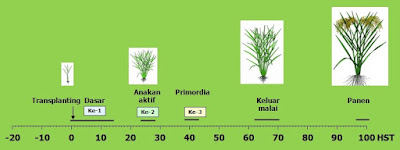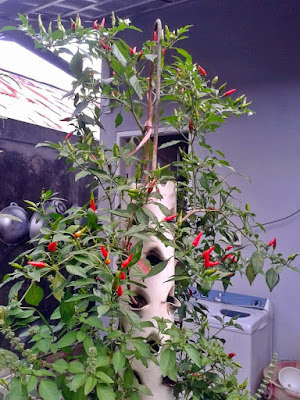THE BENEFITS OF SEA SALT FOR AGRICULTURE
Dear Friends, All farmers Around the World,
Agricultural
researchers have been competing to produce foods with better quality and health
at a low cost with maximum quantity. The researcher have taken the mineral of
sea water as research object in order to increase food production more
efficiently and cost-effectively.
A
farmer from Netherlands, "Marc Van Rijsselberghe" did the experiment
to plant vegetables using a mixture of seawater and fresh water to grow healthy
and delicious organic vegetables. He started experimenting with carrot, cabbage,
onions and beets, but according to Marc he found that potato grew better than
other types of vegetables in a combination of sea water and fresh water media.
According to research in the US, wheat crops which given sea-based salt
fertilizers have increased their vitamin content. Based on the results of
laboratory tests showed the increased levels of vitamins as follows:
1. Vitamin B1 increased
by 35%
2. Vitamin B2 increased
by 10%
3. Niacin increased 38%
4. Vitamin E increases
by 15%
Thus
the potential of coarse salt or sea salt that produced by traditional farmers
in Madura island is very potential to fertilize cultivated crops such as: Rice,
corn, vegetables, etc. Also good for watermelon, chilli, carrots,
cabbage, broccoli, beans, tomatoes, garlic, onion, ginger and others and hard
stem tree (durian, dates, mangosteen, oranges, mangoes, jackfruit, apple and so
on).
So,
what are the benefits of salt for plants?
Let’s find the benefits
of sea salt/seawater for crops:
1. Salt
is useful to neutralize pH soil. The soil that has alkaline pH is included in
the alkaline group. Some examples are livestock manure, animal urine, ditch
soil, burning ash (nawu-nias), crop residues which still in the process of
decomposition. This type of soil usually have to wait for the cooling process
for several weeks before it is ready to use. But with the salt, you can
immediately use it for planting.
2. Salt
containing Na element can substitute element K in soil. Potassium is one of the
macro elements that is needed by plants. Sodium (Na +) and chlorine (Cl-) are
micro elements that can be utilized directly by plants. NaCl is micronutrient
needed to enrich microorganisms both in the soil. Salt also contains Potassium
chloride which indirectly attracts other essential nutrients (both macro and
micro) to be utilized directly by plants through the decomposition process.
3. Eliminates
and kills bacteria and fungi that carry disease in the soil so plants do not
get infected easily and have higher endurance from diseases caused by germs.
4. Fertilize
the soil in an inorganic-natural way without potentially damaging chemicals
that can be used for long periods (long term)
5. The
ability of microorganisms to produce essential nutrients is continuing and can
last where it is not easily eroded by the flow of water due to rain.
6. NaCl
can maintain the water level so that agricultural land is not easily dehydrated
and getting dry when the dry season arrives.
7. Salt
as ionic compounds has an important role to strengthen the immune system of all
living things including human and green plants.
8. Plants
are more green and “bushy”.
9. Strengthen
stems and plant roots.
10. Prevent
flowers not to fall out easily before its time
11. Sweeten
the fruit
12. Treating
late blight and rotten fruits.
13. Overcome
the yellowing plants or leaves.
14. Eliminate
leaf curling disease.
15. Anticipate
the leaves do not fall out prematurely.
16. Prevent
various diseases caused by microorganisms such as bacteria, viruses and fungi.
17. Salt
can be used to keep away, or eliminate destructive pests such as aphis and
other insects.
Still many benefits of
salt we can explore, but the most important is, we can apply what we already
learn, and hopefully our farm become more productive and healthy.
Farmers
Greeting,
World
Food Revolution! Go!



Comments
Post a Comment